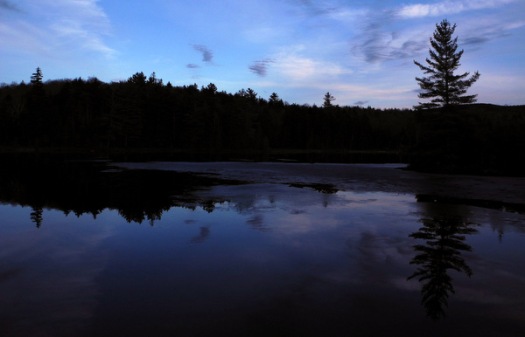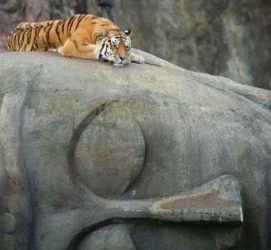
I was a relentless swimmer as a child, more at home
under water, popping up only for air, wishing for gills.
In the pond’s murky realm a few feet down, the big bass, motionless,
eyes swiveling, waited for someone’s last mistake.
In the muddy shallows, the sun warmed the water most,
small things hatched, safe from mouths in the deep water.
Forests of fronds and grasses stretched toward the light,
and died, becoming the black ooze where biting things lived.
I lost it along the way, that simple way a child observes in wonder,
accepting in wisdom, the heavenly song of the world everywhere.
My job these days is to be the archeologist of my life, diving
over and over and staying down, wishing for gills and more time.
On soft summers’ nights, lovesick bullfrogs boomed at the edges.
A muskrat swam in the moonlight, wake effortlessly symmetrical.















 I’m tied down, again.
I’m tied down, again.


You must be logged in to post a comment.